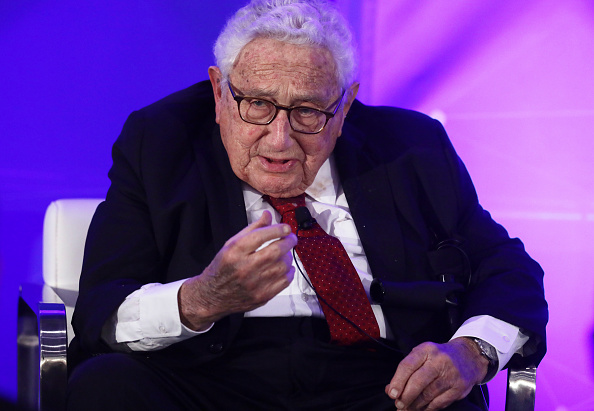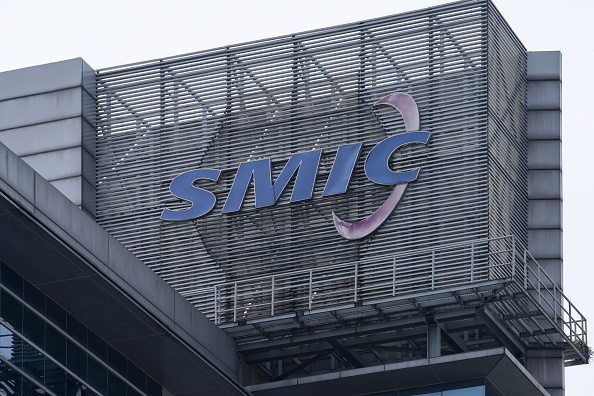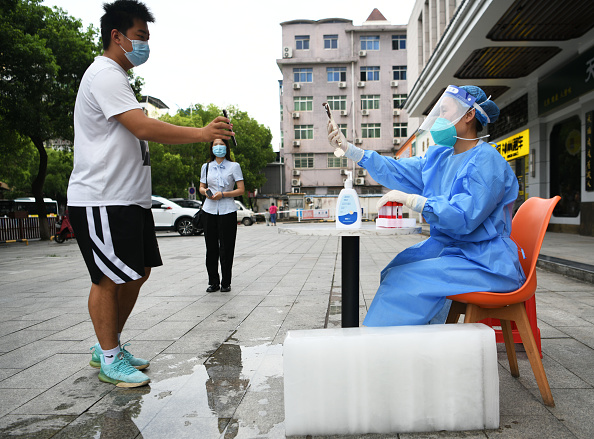
 Nixonian Flexibility
Nixonian FlexibilityAhead of a potential call between Presidents Biden and Xi, which may take place within the next 10 days according to reports, former U.S. Secretary of State Henry Kissinger urged the Biden administration to demonstrate "Nixonian flexibility" in dealing with China, as well as Russia and Europe, in an interview with Bloomberg News this Tuesday.
Kissinger, instrumental in reestablishing relations between China and the U.S. during the Nixon administration, made the statements as tensions between the United States and China continue, despite increased bilateral dialogue. He warned that "Biden and previous administrations have been too much influenced by the domestic aspects of the view of China." To avoid global catastrophe, Kissinger urged global leaders to recognize "the importance of understanding the permanence of China" and avoid confrontation.
The remarks come as news emerged this week that House Speaker Nancy Pelosi is planning a trip to Taiwan next month. The visit has reportedly become a source of contention between Pelosi and the White House, who are worried the trip may further damage bilateral ties and provoke a strong reaction from Beijing. Biden administration officials are concerned that China could seek to declare a no-fly zone over Taiwan, or could respond by flying fighter jets further into Taiwan's self-declared air defense zone, which could trigger a response from Taiwan and the U.S., according to U.S. officials.
China has already called on Pelosi to cancel the visit, promising "strong and resolute measures". Chinese foreign ministry spokesman Zhao Lijian said the visit would "seriously violate" the "One China" policy and would "have a severe negative impact on the political foundation of China-US relations, and send a gravely wrong signal to 'Taiwan independence' separatist forces."
 Chips Ahoy
Chips AhoyBoth China and the U.S. continue to make moves in the high-tech sector, another area of increasing confrontation between the two economies. A new report found that China's Semiconductor Manufacturing International Corp. (SMIC) is likely manufacturing highly advanced nanochips that use 7-nanometer technology. The development is a sign that U.S. export controls related to China's semiconductor industry may not be having the intended effect of blunting the country's leadership in the industry. SMIC's alleged move to bypass these restrictions could further entrench technology and cybersecurity tensions present between China and the U.S.
Meanwhile, the U.S. Senate on Tuesday voted to move ahead with a slimmed-down version of legislation to provide billions of dollars in subsidies and tax credits for the U.S. semiconductor industry. The Senate voted 64-34 on a procedural measure setting the stage for potential votes to pass the legislation by the end of next week. The bill is a scaled-back version of an effort to push back against China's semiconductor influence and ease supply-chain problems. The original version stalled in Congress, even though efforts to counter China are policies generally backed by both parties.
China is also moving ahead with its own efforts to grow its influence over the tech and internet sectors, including ramping up efforts to change global internet rules and standards. Last week, the annual China-hosted World Internet Conference was turned into a permanent organization dedicated to what President Xi described as "global internet development and governance." According to a report by Politico, Xi wants an internet that aligns with the ruling Chinese Communist Party's concept of "cyber sovereignty" that prioritizes government control of online activity. Domestically, China continues to clamp down on tech companies by issuing ride-hailing company Didi Global, with a record $1.2 billion fine for data breaches.
 A Tale of Two Covid Approaches
A Tale of Two Covid ApproachesNew, highly contagious omicron subvariants of Covid-19 are spreading through both China and the United States. While the U.S. resists adopting many of the restrictions seen in the earlier days of the pandemic, China continues to maintain its "zero-Covid" policy. Over 40 cities and roughly 265 million people were under full or partial lockdown in China as of this Monday, according to Japanese bank Nomura.
Although the outbreaks have been small relative to previous subvariants, China maintains its goal of maximum suppression of the virus. China's National Health Commission reported close to 700 cases nationally on Tuesday, with about one third originating from China's western province of Gansu. Gansu's capital Lanzhou, with a population of 4 million people, has gone into a temporary lockdown. On China's east coast, Beihai, a popular beach town in Guangxi province went into lockdown last weekend after roughly 700 locally transmitted cases were detected. Over 2,000 tourists were stuck as a result of the lockdown. In addition to lockdowns, Chinese cities have seen sporadic mass testing and contact tracing as a result of China's zero-Covid policy.
These lockdowns, coming just days after China's economy reported its worst quarterly performance in more than two years, have raised concerns about a further slowdown in China's economy. The Asian Development Bank cut its growth forecast for China due to concerns over the country's Covid approach, placing gross domestic product growth to be at 4% in 2022, down from an earlier estimate of 5%, ADB said in a report published Thursday. "With many economies in the region increasingly choosing to live with the virus and reopening, economic activity continued to expand in the first half of 2022 — with the notable exception" of China, the bank added.
In addition to lockdown-induced weakness in household consumption, a further burden on China's economy "is that the housing market has not stabilized," ADB said in the report. Household demand has been hit by recent Covid-19 outbreaks, which has placed further stress on the property market, it noted.
Prepared by China-US Focus editorial teams in Hong Kong and New York, this weekly newsletter offers you snap shots of latest trends and developments emerging from China every week, while adding a dose of historical perspective.
- 2022-07-15 List Diplomacy
- 2022-07-08 Easing Tariffs, Not Tensions
- 2022-07-01 Getting Tough
- 2022-06-24 Tools in the Box
- 2022-06-17 Unprecedented Oversight
- 2022-06-10 Squaring Off
- 2022-06-03 Diplomatic Chills
- 2022-05-27 Competing Visions
- 2022-05-20 Common Ground
- 2022-05-13 Bilateral Interests
- 2022-05-06 Vying for Mutual Benefit
- 2022-04-29 Seeking Relief
- 2022-04-22 Tipping Point
- 2022-04-15 “Persistence is Victory”
- 2022-04-08 No Divorce
- 2022-04-01 Auditing Accountability
- 2022-03-25 Playing Policy
- 2022-03-18 One Hand Cannot Clap
- 2022-03-11 Political Forecast
- 2022-03-04 Competitive Advantage
